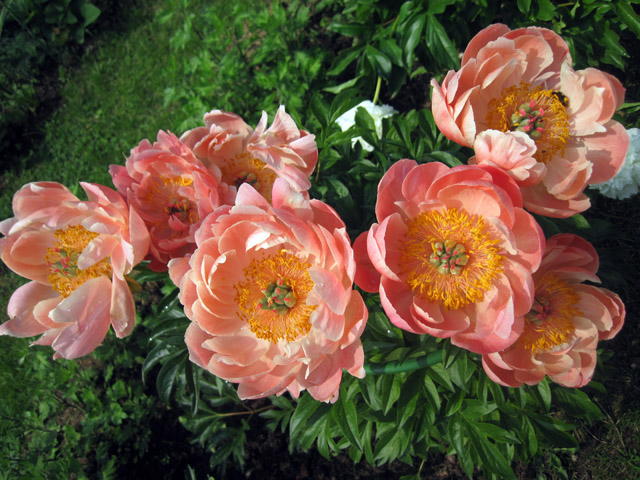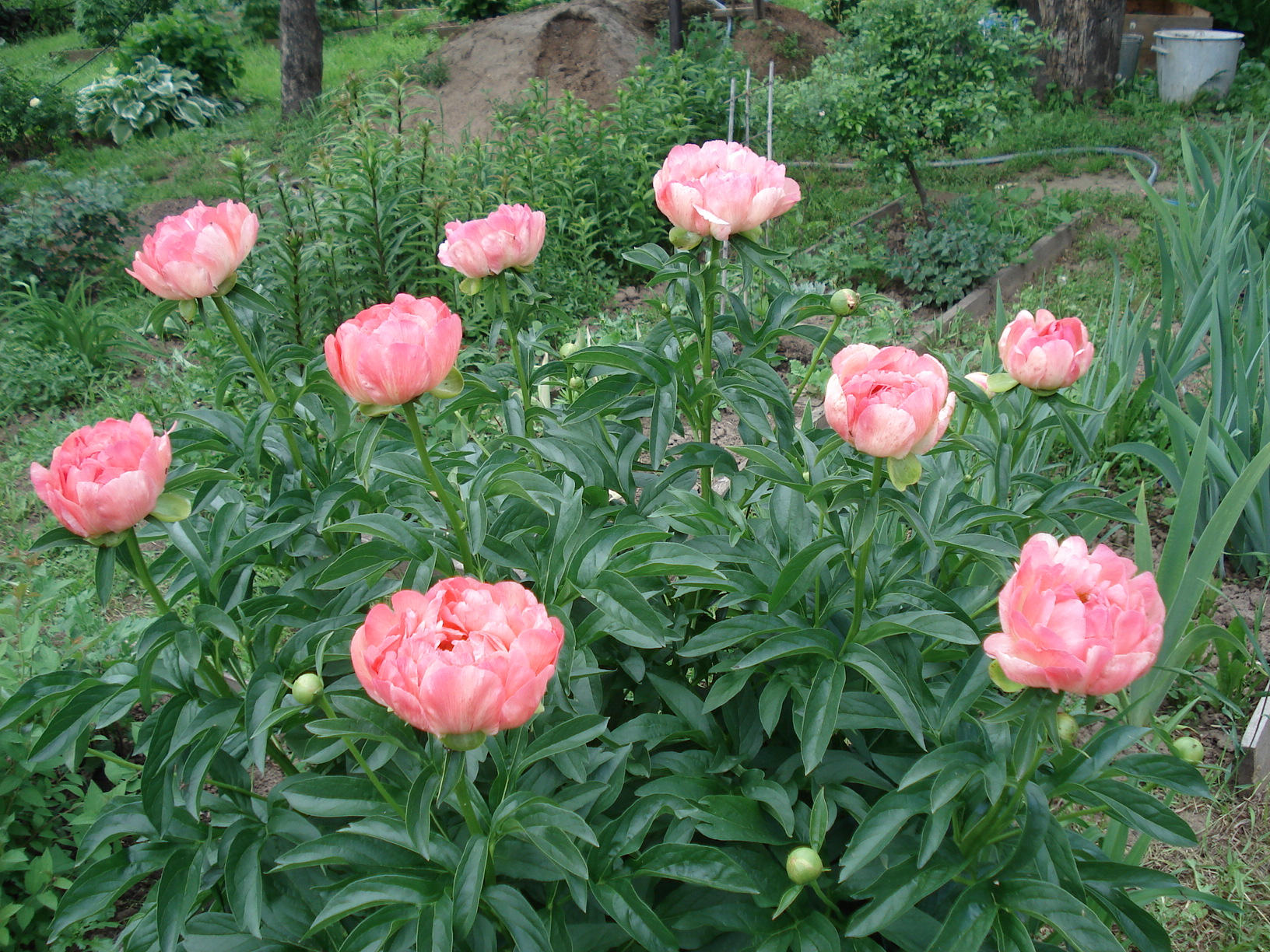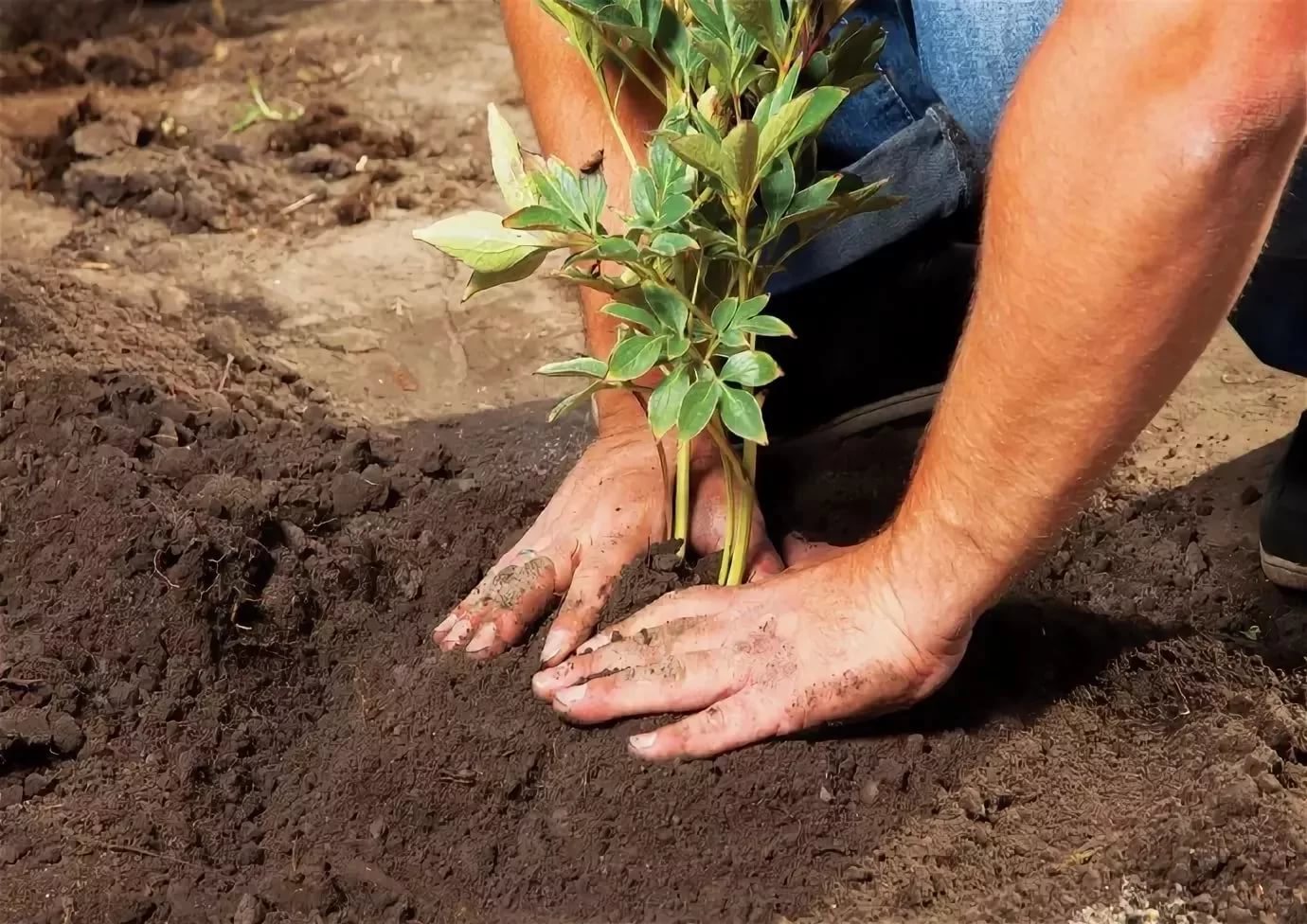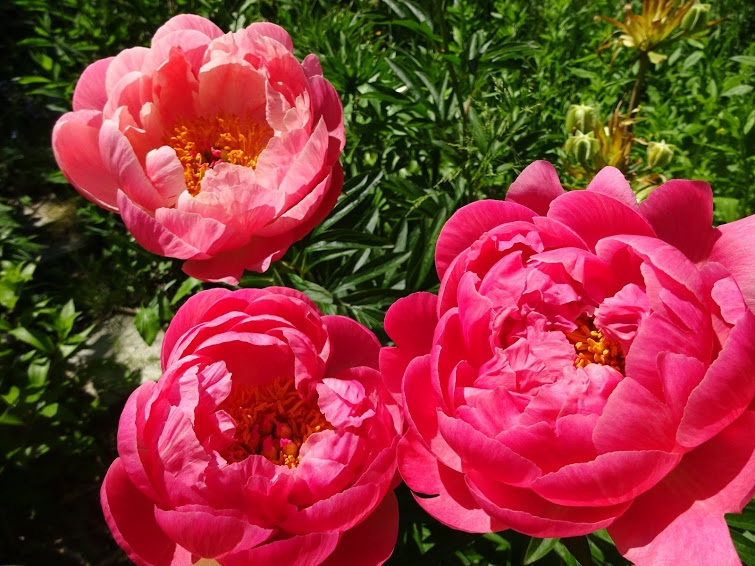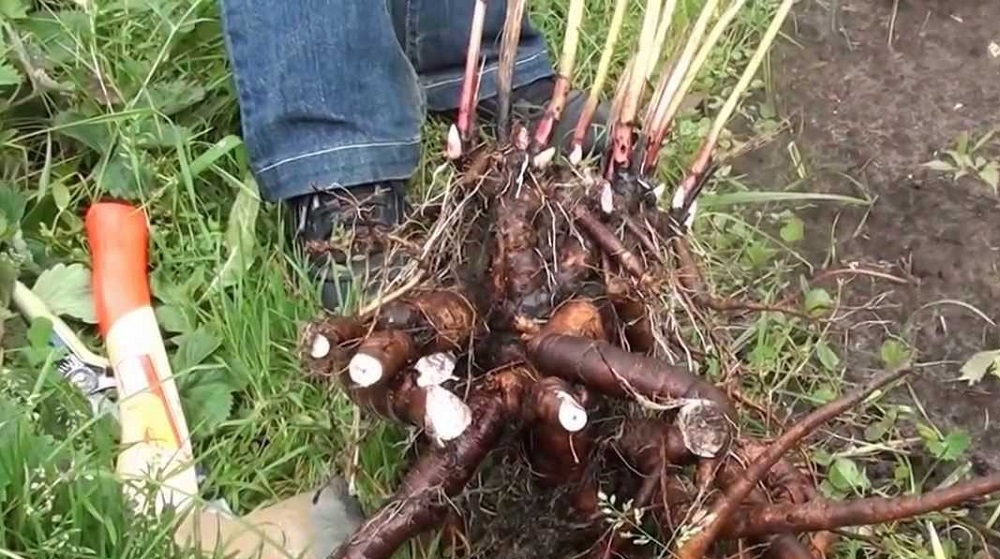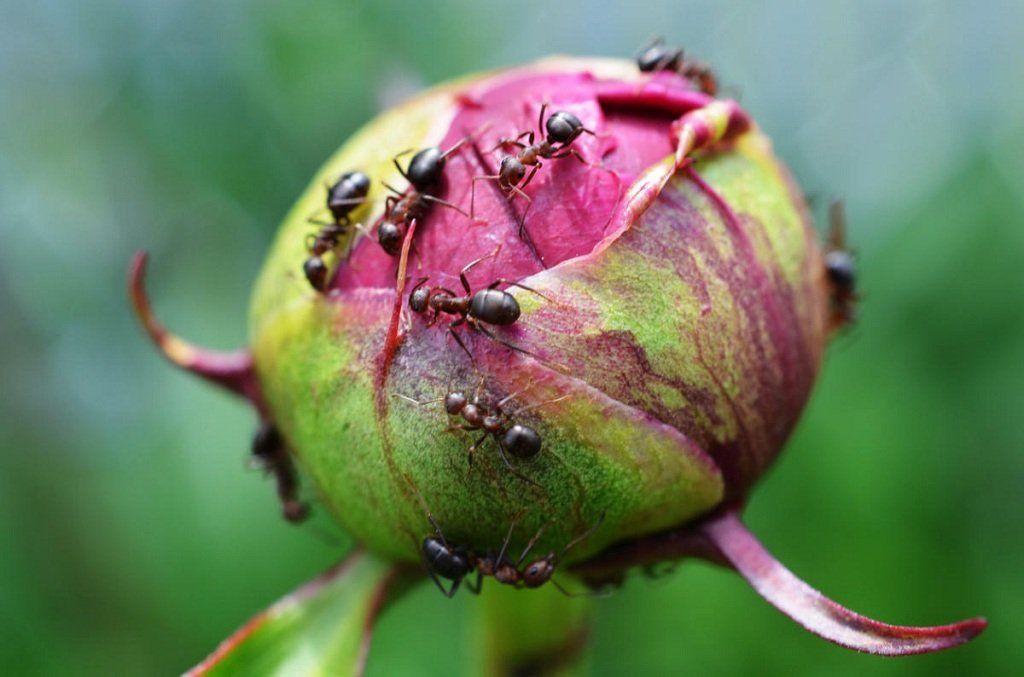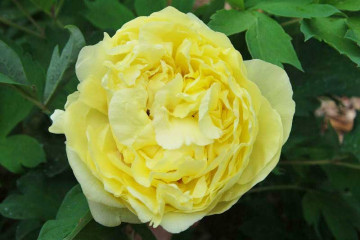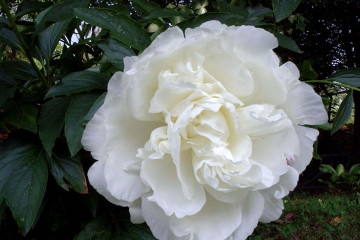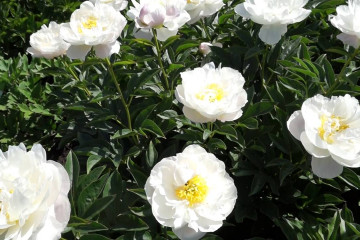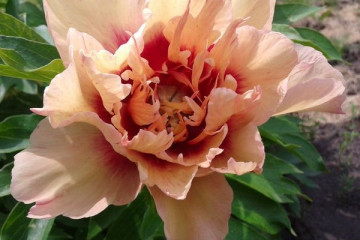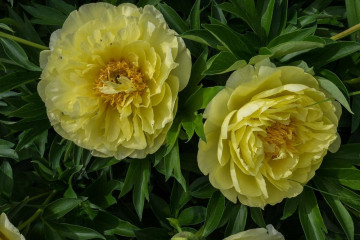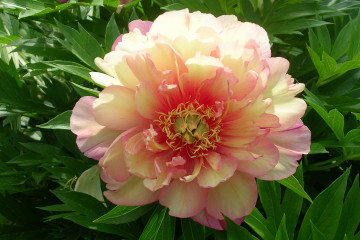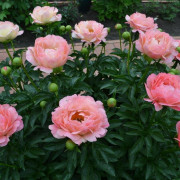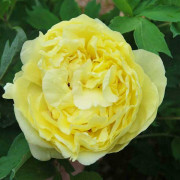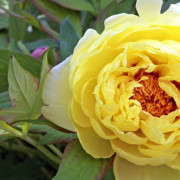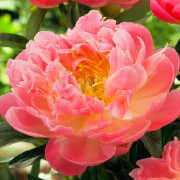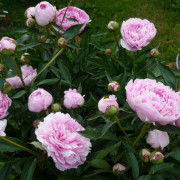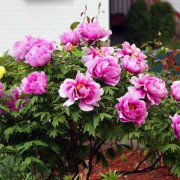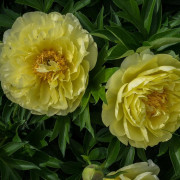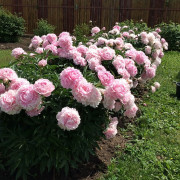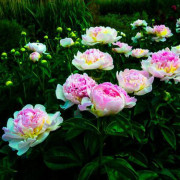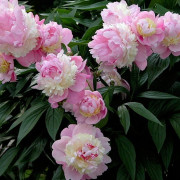Peony Coral Supreme (Paeonia Coral Supreme)
Content:
Breeders have bred many varieties of peonies. The petals of the culture are colored in different colors. Coral varieties of peonies are very popular among gardeners. A variety of culture bred by American breeders.
What is this grade
Peony Coral Supreme was bred in 1964. The hybrid is appreciated for its beautiful flowering, the ability to endure frosty winters without shelter.
Description, characteristic
Coral Supreme peony bushes reach a height of 90-100 cm. Strong shoots do not bend from rain and wind, therefore they do not need support. The pinnate leaves are green in summer and turn red in autumn.
The buds begin to bloom at the end of May. Flowering lasts about 2 weeks. The petals are pink-salmon colored, the middle of the inflorescence is yellow. Dissolving buds reach 20 cm. A delicate aroma emanates from them. The root system is powerful, extending down to 1 m.
Advantages and disadvantages
The positive qualities of the variety include the following characteristics:
- decorative appearance;
- flowering within 2 weeks;
- frost resistance;
- unpretentious care;
- the possibility of growing in a greenhouse.
There were no significant shortcomings in the variety called Coral Supreme.
Use in landscape design
The bush can be planted alone against the backdrop of a lawn or combined with other varieties of crops, for example, Coral Beach peony. The plant will look beautiful against the background of evergreen conifers.
The bushes are planted along the garden path, combined with beautifully flowering and decorative deciduous perennials: roses, hosta, geyhera, badan.
Growing
In order for the Coral Supreme peony to bloom beautifully and for a long time, agrotechnical measures must be correctly carried out.
Planting by root cuttings
Peony Supreme is propagated by dividing rhizomes. To do this, choose bushes older than 3-4 years. An adult plant is dug in from all sides, divided into parts with a shovel. Each division should have 2-3 renewal buds.
What time is the boarding
The procedure is carried out in late August or early September. This is the best time to transplant shrubs. Experienced gardeners say that with spring planting, peonies may never bloom.
Location selection
For planting a peony, a well-lit area, protected from drafts, is selected. In partial shade and shade, the shoots will begin to thin out, stretch out. Groundwater at the planting site of the bushes should not come close to the soil surface.
How to prepare a flower and soil
The site is cleared of debris, dug up. Paeonia will thrive best in loamy soil with a neutral acidity level. If the soil is heavy, peat and sand are added to it.
The dug uterine bush is washed under running water. When the root system dries out, it is divided into several parts. The resulting fragments are sprinkled with wood ash. This is necessary to prevent the formation of putrefactive microorganisms on them.
Planting procedure step by step
Peonies are planted in the ground as follows:
- dig a hole 50 cm deep and in diameter;
- lay out a drainage layer, consisting of sand, small stones;
- pour a substrate consisting of leaf and sod land, humus, peat;
- a rhizome is installed in the middle of the pit;
- fall asleep with a substrate, watered abundantly.
Renewal buds should not be deeper than 2-3 cm.
Planting with seeds (for breeding)
Gardeners do not propagate peony seeds by seeds. This procedure is time consuming and laborious. Seeds require preliminary stratification. If they are sown directly into the ground in the fall, the procedure is carried out in a natural way in winter.
Plant care
Crop care consists in timely watering, feeding, loosening the soil. To protect against diseases and pests, prophylactic spraying is performed.
Watering and feeding
Immediately after planting the rhizomes, the soil is plentifully watered. Then the soil is irrigated after the top layer has dried. Since the rhizomes of the culture go deep into the ground, 2-3 buckets of water are poured under each bush.
If the Coral Supreme herbaceous peony was planted in fertile land, they begin to feed it only in the 3rd year. Nitrogen is introduced in early spring. This substance contributes to the development of green mass. Before and after flowering, phosphorus-potassium fertilizers are applied.
Loosening and mulching
To get air to the roots, the soil around the plants is loosened a few days after watering. To preserve moisture in the ground, the root circle of peonies is mulched with a layer of 3-5 cm. To do this, use tree bark, peat, cut grass. Decayed substances will serve as an additional source of nutrition.
Preventive treatment
Peonies are not protected from pests and diseases. Problems can be prevented by preventive spraying. In the spring, the bushes are treated with Bordeaux liquid. Then 2-3 times they are sprayed with insectofungicides.
Peony Blossom Coral Supreme
Pink-coral inflorescences bloom in the form of a bowl, the diameter of which is 19-20 cm. A delicate aroma emanates from the bushes during the flowering period.
A period of activity and rest
The buds bloom in late May or early June. Flowering lasts 12-14 days. Then the peonies begin a dormant period. Due to the beautiful foliage, the bushes retain their decorative effect even after flowering.
Care during and after flowering
Before flowering, the bushes are watered abundantly, then fed. Dried buds are removed. If left, seeds will begin to form, which will weaken the plants. You cannot completely remove the green mass. The development of roots and the laying of flower buds for the next season takes place through the ground part.
What to do if it does not bloom, possible reasons
If the bushes are less than 3 years old, flowering may not occur due to their youth. Too old plants do not grow buds due to the thickening of the rhizome. To remedy the situation, the bushes are dug up, divided into parts, each fragment is planted in a separate hole.
Another reason is that coral peonies are planted too deeply. Flowering may not start due to groundwater approaching too close to the surface of the ground. To correct the situation, the bushes, without deepening, are transplanted to a suitable place.
Peonies after flowering
Bushes need care not only before and during flowering, but also after it.
Transfer
Bushes are transplanted in late summer or autumn. They are dug up, divided into parts. Peonies are planted in a sunny place. The root circle is mulched.
Pruning
Dried buds are removed. Immediately after flowering, flower arrows and foliage cannot be completely cut off.Through them, the root system is nourished.
Preparing for winter
Peony Coral Supreme does not need shelter for the winter. It is enough to cut off the aerial part with the onset of cold weather, and mulch the root circle.
Diseases, pests and ways to control them
With improper care, there is a possibility of fungus damage to the bushes. Powdery mildew and cladosporiosis may appear on the leaves. Get rid of diseases by spraying with fungicide.
Of the pests, aphids and bronzes can attack peonies. When they appear, peonies spray with insecticides. Ants are very fond of the culture, during the invasion of which the earth and bushes are irrigated with repellents.
Coral Supreme is a peony variety, the flowers of which are painted in pink-coral color. Taking care of your culture is easy. It is necessary to periodically water and feed the bushes, mulch the soil.
